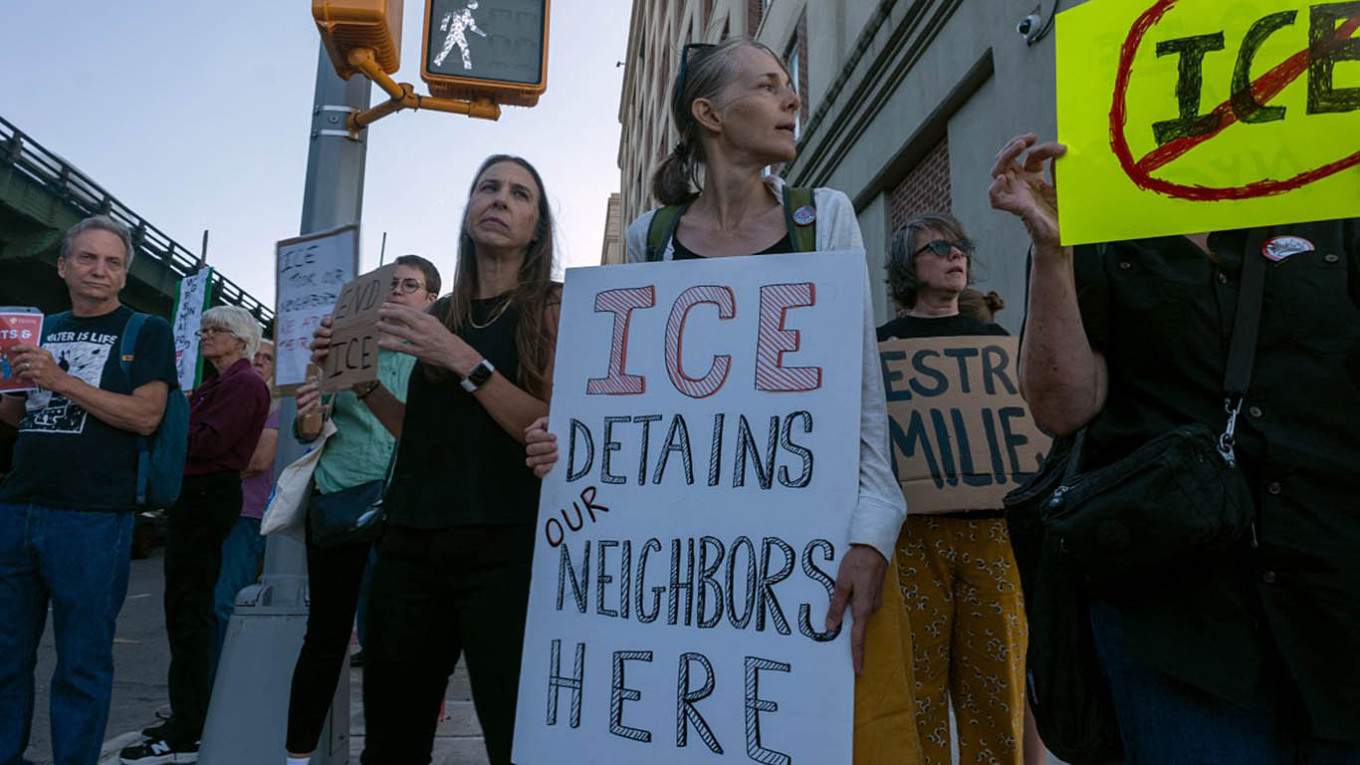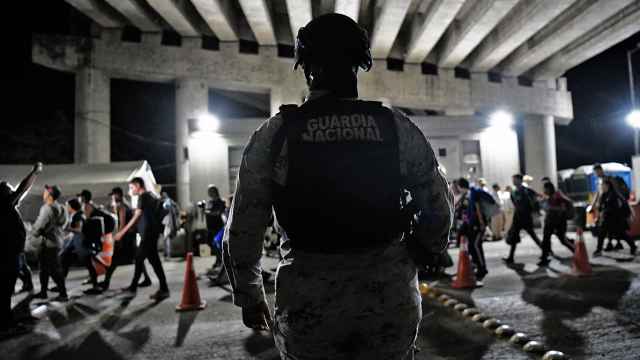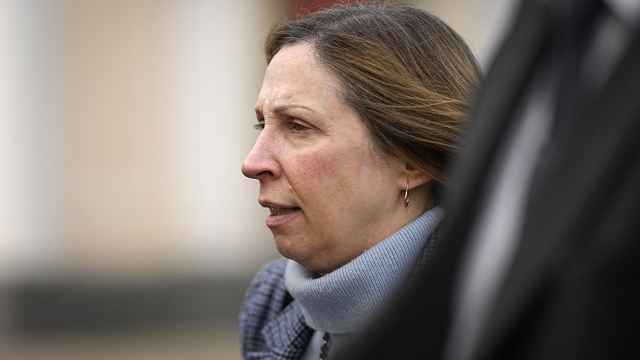Alexander Bolokhoev, a 41-year-old native of Russia’s republic of Buryatia, was rounded up by U.S. Immigration and Customs Enforcement (ICE) agents on Sept. 23 in Oklahoma when completing a routine delivery in his box truck.
“He wasn’t even allowed to take his phone, wallet or any other personal belongings out of the car…It was left standing there unlocked,” said Bolokhoev’s friend Marina Khankhalaeva, who learned of his detention from an odd Instagram message he managed to send.
An ethnic Buryat, Bolokhoev said he came to the U.S. in search of refuge from racial discrimination that members of his Mongolic ethnic group face despite being Russian citizens born on their ancestral lands.
But as the U.S. institutes a sweeping immigration crackdown, he has become one of the many Indigenous Russians who now find themselves detained and facing deportation — a process that for many bears traces of the discriminatory system they fled.
Hundreds of members of Russia’s numerous Indigenous communities and ethnic minority groups have come to the U.S. in recent years in hopes of escaping systemic racial oppression that their families faced in Russia for generations.
Dozens of them are facing deportation, The Moscow Times estimated based on interviews with their families and attorneys. They make up a sizable but little-reported portion of the Russian asylum seekers caught up in President Donald Trump’s immigration crackdown.
ICE, an agency under the U.S. Department of Homeland Security (DHS), did not respond to The Moscow Times’ requests for comment.
Christopher Setz-Kelly, an immigration attorney overseeing a handful of Russian asylum claims, said the majority of his ongoing cases involve Indigenous peoples from republics like Tatarstan and Chechnya.
“I think a lot of it is the fact that the Russian government is targeting these ethnic minority groups for recruitment in the war,” Setz-Kelly told The Moscow Times. “Some of these people have longstanding political beliefs that are in tension with the central government that predate the war.”
“There’s oftentimes multiple threads to their asylum cases that are tied to their ethnic identity,” he said.
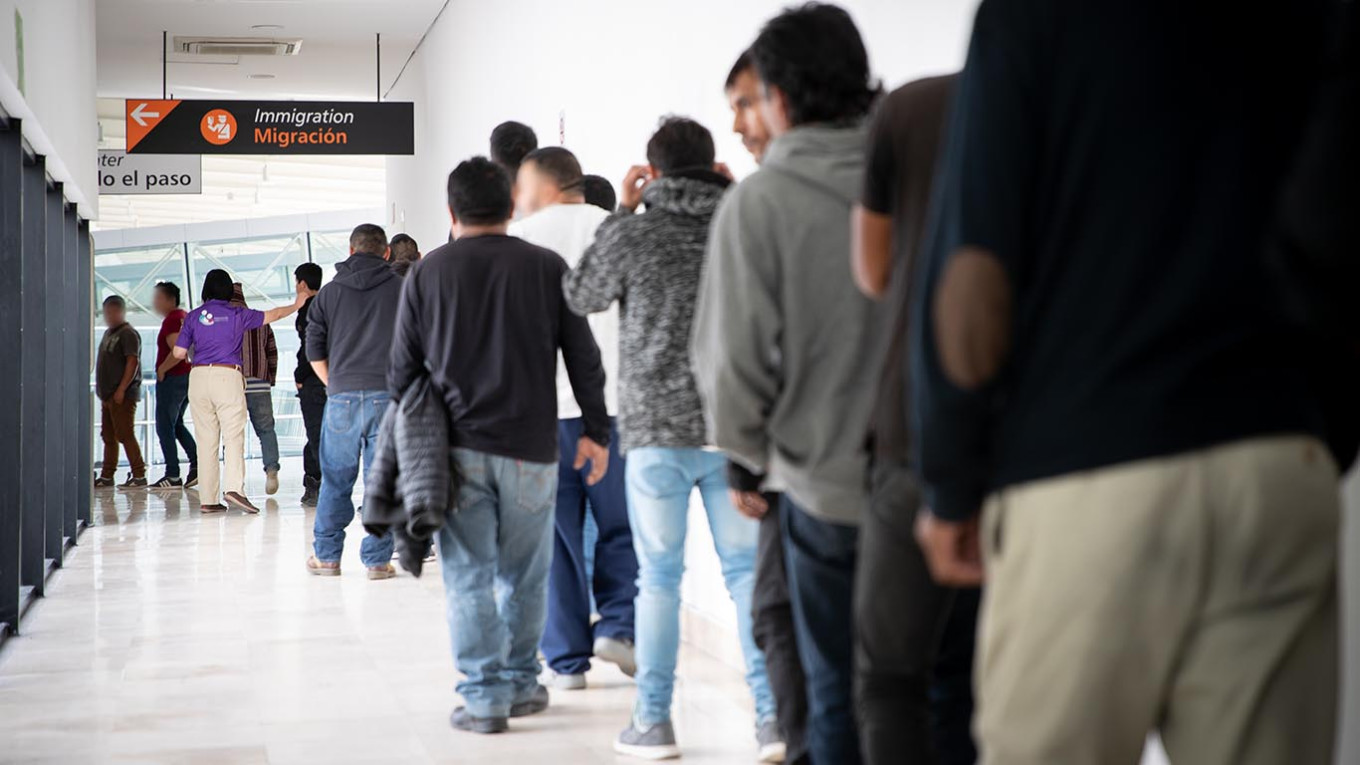
Buryatia consistently ranks among Russian regions with the worst quality of life, something that pushes many locals to seek education and employment opportunities elsewhere in the country, where they risk falling victim to racial profiling or xenophobic attacks.
Some take a step further and leave Russia.
Bolokhoev had been studying for his bachelor’s degree in informatics in Novosibirsk when he was detained by Russian police outside his student dormitory for not having an ID on him, taken to the police station and locked in a cell overnight, his friend Khankhalaeva recalled.
“They put a drunk Russian guy in the same cell with him. He picked a fight with Alexander and nearly killed him. The police just stood by and watched. They were bored and found it entertaining,” said Khankhalaeva, noting that the incident left a profound mark on her friend, who described it in detail all these years later.
Bolokhoev crossed the U.S.-Mexican border and applied for asylum in 2022. Three years later, his American dream is hanging by a thread.
“It's understandable how someone who isn’t familiar with the U.S. could come here and think that it's so much better [than in Russia], that there's no racism here. That is, until they start experiencing it, especially on a systemic level,” said Elena Emelchin, an immigrant rights organizer at the Philadelphia-based non-profit Asian Americans United (AAU).
“It's not any fault of anybody else, except for the U.S. government and its propaganda,” Emelchin, who is also part of Sarin Gal, a social justice organization for the Indigenous Oirat-Kalmyk people of Russia’s republic of Kalmykia, told The Moscow Times.
Emelchin said AAU has noticed a dramatic increase in ICE-administered detentions since early September, recording a total of 25 cases in the community, including 15 in the past month.
About 25% of cases handled by AAU are similar to those of Bolokhoev, the truck driver picked up while working. Another 75% are people detained at routine appointments with ICE or other federal agencies, according to Emelchin.
“The U.S. government is either forcing people into possible detention…or forcing them to not follow the rules and then labeling them as criminals for justification for removal. It's a lose-lose situation and a very high-stress situation for a lot of families,” she explained.
Bolokhoev’s story bears similarities to others that The Moscow Times heard in interviews with detained Russian asylum seekers in recent weeks.
Many of them said they have faced undue attention for simply being Russian, in addition to encountering unique barriers like a lack of access to Russian-speaking lawyers and interpreters.
One man who identified as an ethnic Ukrainian described what he claimed was discrimination on the part of immigration officials for holding a Russian passport.
“I saw people being let out every day,” said the man, who spoke to The Moscow Times from a detention center in Georgia and requested anonymity to speak freely. “We sat here asking ‘Why are we here?’”
The answer that he was given: “Because you're Russian.”
His asylum claim was recently denied, and he will face imminent deportation if an appeal fails. He faces prison time back home in Russia on charges of “discrediting” and spreading “false information” about the army, he claimed.
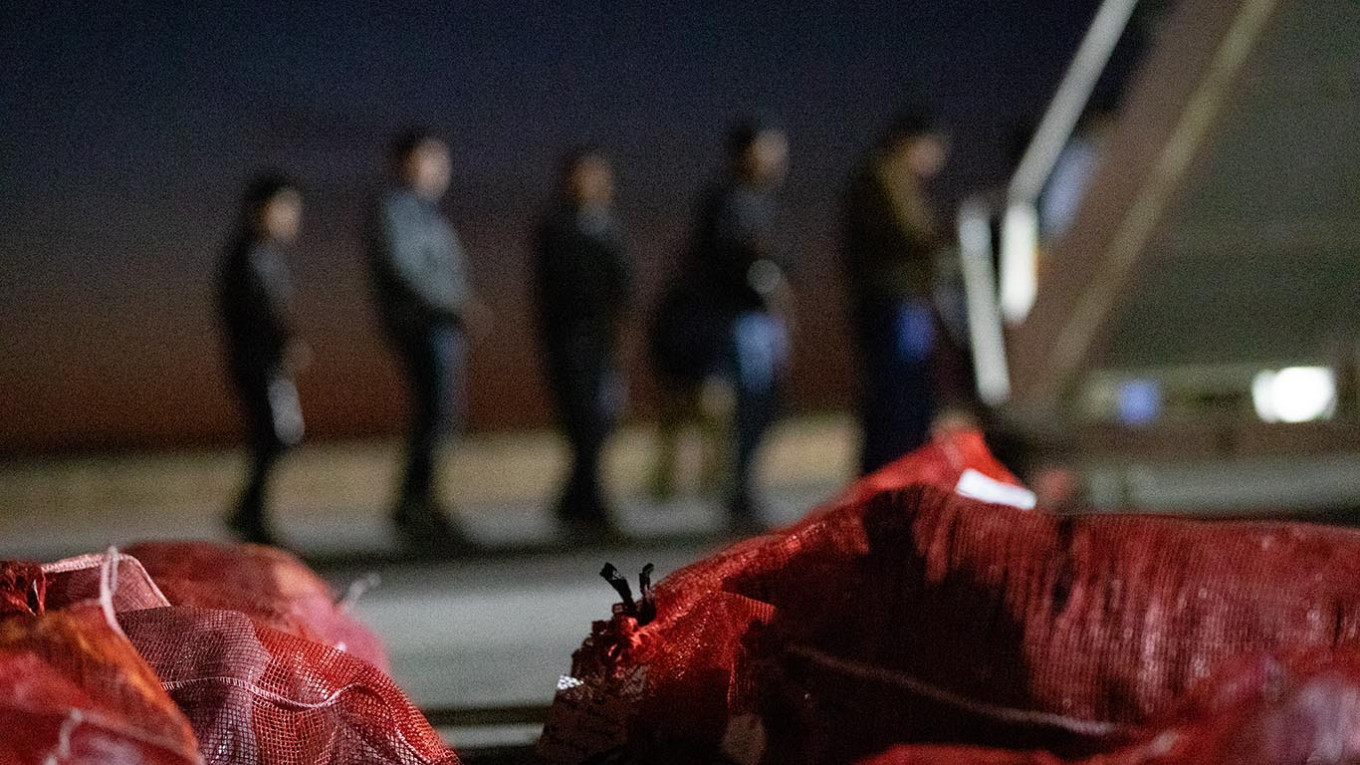
Another man, a member of a large Indigenous group who wished to remain anonymous, described the harrowing experience of being detained during a routine appointment with immigration officers this fall, an increasingly common practice.
Leaving Russia in the wake of the invasion of Ukraine, the man and his wife wanted to move to the U.S. to give their children better opportunities.
“I wasn't drafted, but I couldn’t come to terms with the fact that my country was killing civilians. These were Russia's closest neighbors,” he said. “I didn't want my children to be raised on such propaganda,” he added, referring to Russia’s pervasive pro-war political atmosphere.
They came to the U.S. through Mexico in late 2023 and, after a period of temporary living arrangements, finally felt like they had found a home: a city with a large Russian-speaking diaspora and many job opportunities.
The man enrolled in classes at a local university, and last year he and his wife had a baby.
But when they went to what they thought would be a regular document check this fall after missing their previous appointment due to illness, ICE officers detained him and sent his wife a notice to come back for an appointment in March 2026.
“When they detained us, they took all our personal belongings. I don't know why, but they handcuffed us and put shackles on our feet,” the man said. “I called my wife, told her that everything would be fine, reassured her. [Then] they put us in cells, and at the end of the workday they took us to a federal prison.”
The man and his family requested anonymity because they are considering so-called “self-deportation,” an act pushed by the Trump administration to supposedly reduce the number of illegal immigrants in the country.
The Moscow Times verified his story with his family and lawyer.
“When I came to the U.S., I thought there would be a more loyal, democratic attitude towards migrants, that migrants would be given more rights and more freedom here,” said the man.
Now, he said he can’t help but draw comparisons between his situation and those of migrants back in Russia who are navigating mounting anti-migration policies and discrimination.
“In the U.S. I would say of course it's different, but in some ways [the treatment of migrants is] similar to Russia,” he said. “Now, it's the same in Russia: migrants are being detained and checked, and it's almost the same here.”
Though DHS is believed to have spent hundreds of millions of dollars on promoting the self-deportation agenda, Emelchin said there have been “very few” such cases in the Indigenous communities from Russia that she works with.
For many of these people, a return to Russia seems to be no different from a death sentence.
“If he is deported back to Russia, he will be greeted by the FSB at the tarmac,” Buryat activist Khankhalaeva said of Bolokhoev, the truck driver detained in Oklahoma whose release she is now campaigning for.
Dismayed by the disproportionate mobilization of fellow Buryats for Russia’s war in Ukraine, Bolokhoev joined the U.S.-based Khankhalaeva in founding Tusgaar Buryad-Mongolia, an exiled Buryat national liberation movement, in 2022.
Last year, Tusgaar Buryad-Mongolia was designated a “terrorist” organization by Russia alongside over 170 other Indigenous rights groups, meaning its founding members could face up to 20 years in Russian prison.
Certain that Bolokhoev will be “tortured to death” in a Russian prison, Khankhalaeva said she fears he will be forced to reveal the names of now-anonymous members of her team, whose entire families in Buryatia could then face a similar fate.
“He must not be deported,” she said.
A Message from The Moscow Times:
Dear readers,
We are facing unprecedented challenges. Russia's Prosecutor General's Office has designated The Moscow Times as an "undesirable" organization, criminalizing our work and putting our staff at risk of prosecution. This follows our earlier unjust labeling as a "foreign agent."
These actions are direct attempts to silence independent journalism in Russia. The authorities claim our work "discredits the decisions of the Russian leadership." We see things differently: we strive to provide accurate, unbiased reporting on Russia.
We, the journalists of The Moscow Times, refuse to be silenced. But to continue our work, we need your help.
Your support, no matter how small, makes a world of difference. If you can, please support us monthly starting from just $2. It's quick to set up, and every contribution makes a significant impact.
By supporting The Moscow Times, you're defending open, independent journalism in the face of repression. Thank you for standing with us.
Remind me later.




